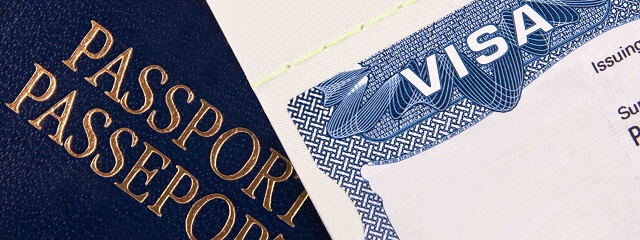Visas in Bulgaria
I. What is a visa?
The visa is a permit issued by the Republic of Bulgaria for entry and stay, transit or airport transit.
The visa is issued in the form a uniform visa sticker according to a European Union sample and is valid only with the regular foreign travel document or another substituting document in which or to which it is placed.
The issuance, the refusals of issuance, the annulment and the cancellation of visas are performed by the diplomatic and consular missions of the Republic of Bulgaria abroad and by the border control bodies, and the annulment and the cancellation – and by the authorities for administrative control of foreigners.
A foreigner may not enter and reside in the Republic of Bulgaria on the sole ground of possessing a visa. Any foreigner who enters the Republic of Bulgaria or who transits the country, depending on the purpose of the travel, must be in possession of:
- a regular foreign travel document or another substituting document as well as a visa if required;
- sufficient financial means to ensure his/her subsistence according to the length and conditions of the residence in the Republic of Bulgaria as well as to return in the state of his/her permanent residence or to pass through the Republic of Bulgaria;
- a medical insurance and other insurances when such are required;
- a sample invitation if required;
- any other documents proving the purpose of the journey and the conditions of the planned stay.
II. When a visa is not required?
A foreigner may enter the Republic of Bulgaria if he or she holds a regular foreign-travel document or another substituting document, as well as a visa if required.
No visa is required where this is provided in Regulation (EC) № 539/2001 of the Council, in other EU acts with binding effect, in an international agreement to which the Republic of Bulgaria is a party or in an act of the Council of Ministers.
No visa is required also when the foreigner holds a valid extended, long-term or permanent residence permit for the Republic of Bulgaria.
A foreigner who is a member of the family of a Bulgarian citizen may enter the territory of the Republic of Bulgaria with a passport and a visa, if required. No visa is required when a foreigner who is a member of the family of a Bulgarian citizen holds a residence card of a member of the family of a European Union citizen issued in:
1. the Republic of Bulgaria if the grounds for its issuing have not become non-existent;
2. another Member State of the European Union if he/she accompanies or joins the Bulgarian
citizen.
III. Types of visas in Bulgaria
The type of visa is determined by the purpose for which it is issued:
1. airport transit visa (type “A” visa);
2. short-term residence visa (type “C” visa);
3. long-term residence visa (type “D” visa).
A. Airport transit visa (type “A” visa)
An airport transit visa is issued to a foreigner who is arriving by aircraft from a certain country and stays in the international transit zone of an airport on the territory of the Republic of Bulgaria with the aim of continuing his/her travel with the first next flight to a different country. A foreigner travelling with an airport transit visa is considered not admitted to the territory of the Republic of Bulgaria.
B. Short-term residence visa (type “C” visa)
A short – term residence visa is issued to a foreigner for the purposes of transit or planned stay on the territory of the Republic of Bulgaria.
A short – term residence visa for transit has duration of stay on the territory of the Republic of Bulgaria of two days, unless otherwise is provided in an international agreement, and is issued to a foreigner, who enters the territory of the Republic of Bulgaria and leaves the country on his/her way from one country to another country. The total duration of stay with such visa may not exceed three months within every six-month period, counting from the date of the first entry on the territory of the Republic of Bulgaria.
A short – term residence visa for planned stay has a duration not exceeding three months within every six-month period, counting from the date of the first entry on the territory of the Republic of Bulgaria.
A short – term residence visa may be issued for one, two or multiple entries. The period of validity of the visa and the duration of the permitted residence are determined on the basis of examination of the conditions of entry and risk assessment during the examination of the visa application. The period of validity of the visa may not exceed 5 years.
C. Long-term residence visa (type “D” visa)
A long-term residence visa with a validity period of up to six months and entitlement to residence of up to 180 days is issued to a foreigner who wishes to settle for an extended period or permanently in the Republic of Bulgaria.
A long-term residence visa with a validity period of up to one year and entitlement to residence of up to 360 days may be issued to foreigners conducting scientific research or students under one-year education programmes, scholars or trainees, foreigners on business trips on behalf of a foreign employer for performing specific tasks related to control and coordination of the implementation of a tourist services contract as well as foreigners on business trips on behalf of a foreign employer for execution and maintenance of investments certified under the procedure of the Investment Promotion Act.
The long-term residence visa entitles the holder to multiple entries to the territory of the Republic of Bulgaria within its validity period. The long-term residence visa is cancelled when a residence permit is issued by the authorities for administrative control of foreigners.







